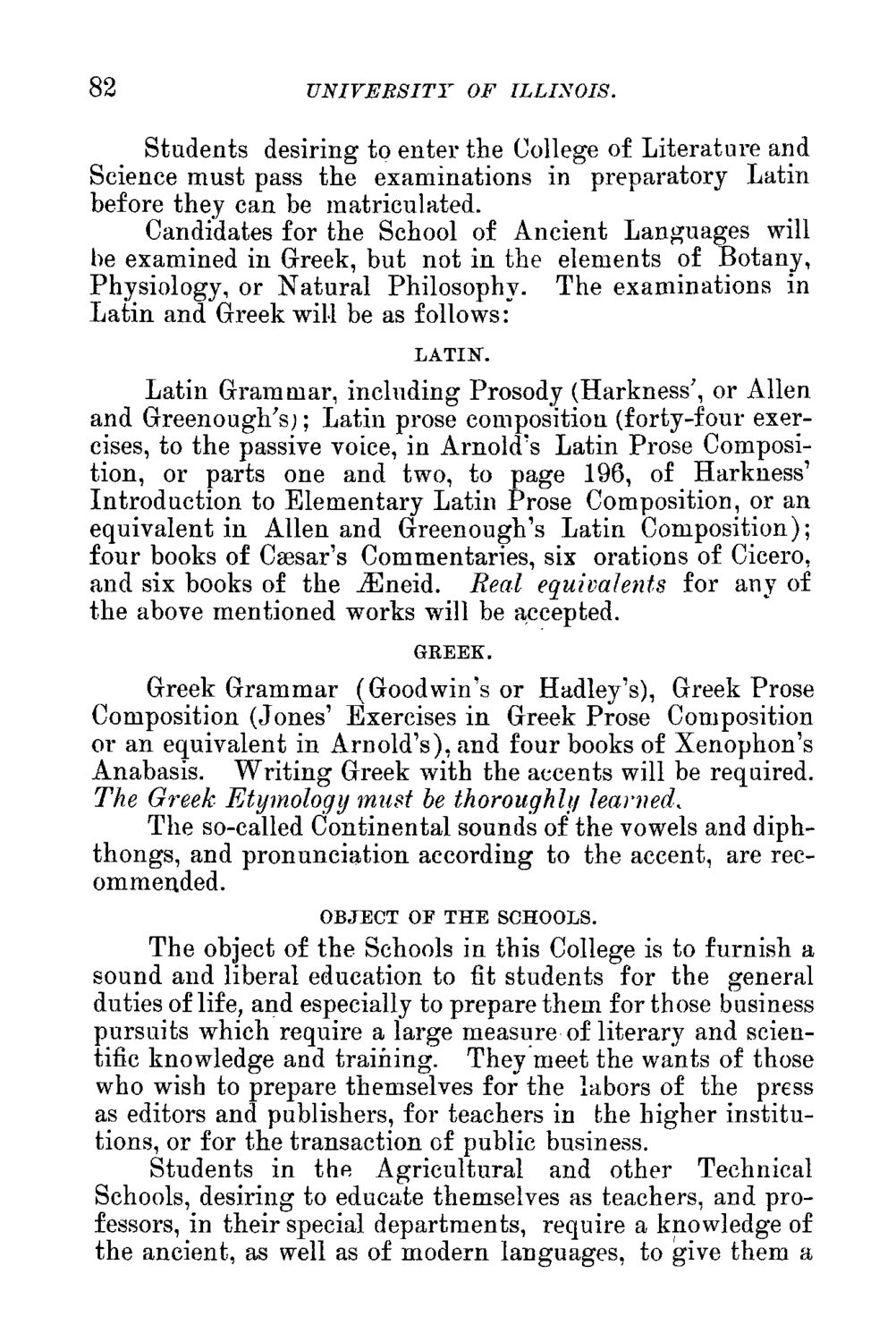| |
| |
Caption: Course Catalog - 1888-1889
This is a reduced-resolution page image for fast online browsing.

EXTRACTED TEXT FROM PAGE:
82 UNIVERSITY OF ILLIXOIS. Students desiring to enter the College of Literature and Science must pass the examinations in preparatory Latin before they can be matriculated. Candidates for the School of Ancient Languages will he examined in Greek, but not in the elements of Botany, Physiology, or Natural Philosophy. The examinations in Latin and Greek will be as follows: LATIN. Latin Grammar, including Prosody (Harkness', or Allen and Greenough'sj; Latin prose composition (forty-four exercises, to the passive voice, in Arnolds Latin Prose Composition, or parts one and two, to page 196, of Harkness' Introduction to Elementary Latin Prose Composition, or an equivalent in Allen and Greenough's Latin Composition); four books of Caesar's Commentaries, six orations of Cicero, and six books of the iEneid. Real equivalents for any of the above mentioned works will be accepted. GKEEK. Greek Grammar (Goodwin's or Hadley's), Greek Prose Composition (Jones' Exercises in Greek Prose Composition or an equivalent in Arnold's), and four books of Xenophon's Anabasis. Writing Greek with the accents will be required. The Greek Etymology must be thoroughly learned. The so-called Continental sounds of the vowels and diphthongs, and pronunciation according to the accent, are recommended. OBJECT OF THE SCHOOLS. The object of the Schools in this College is to furnish a sound and liberal education to fit students for the general duties of life, and especially to prepare them for those business pursuits which require a large measure of literary and scientific knowledge and training. They meet the wants of those who wish to prepare themselves for the labors of the press as editors and publishers, for teachers in the higher institutions, or for the transaction of public business. Students in the Agricultural and other Technical Schools, desiring to educate themselves as teachers, and professors, in their special departments, require a knowledge of the ancient, as well as of modern languages, to give them a
| |